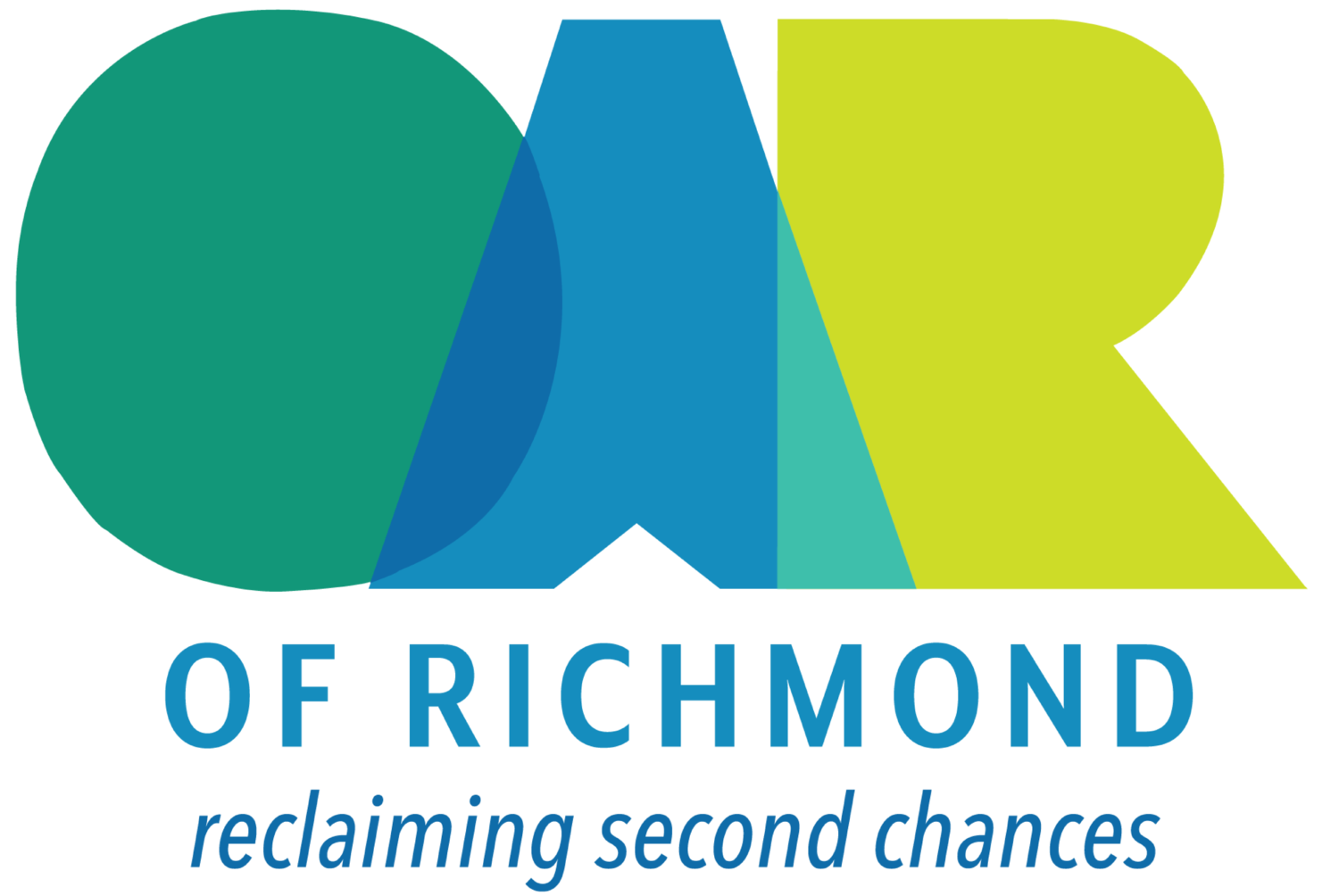History of OAR
OAR's old building at 3rd and Main in the 1960's. OAR services took place in St. Alban's Hall, a historic landmark built in the 1800's. OAR moved to Scotts Addition in July 2016.
In 1971, Colonel Jay Worrall established the first Offender Aid and Restoration program in Roanoke, Virginia. This pilot program marked the beginning of a statewide effort to meet the needs of offenders through the use of citizen volunteers and community groups. An Offender Aid and Restoration Advisory Board was formed in Richmond in 1971 and the Rev. Robert L. Mordhorst was hired as the first director. In 1974 the Advisory Board was incorporated as Offender Aid and Restoration of Richmond, Inc.
Throughout the 1980's and early 1990's, OAR expanded its services beyond Richmond City Jail to include local jails in Hanover, Henrico, and Chesterfield counties. In 1990, OAR began offering post-release services at its Central Office to persons with adult criminal convictions who had been previously incarcerated. Until the mid-1990's OAR participated in a Court Services Program to provide sentencing alternatives to the Richmond General District court, around this time OAR shifted its program to focus solely on reentry services rather than supervision.
Since then, OAR has continued to offer both pre and post release services to adults with criminal convictions, serving over 4,000 clients per year. It has participated in numerous Federally funded reentry programs including, the Second Chance Mentoring and Transition Services program, which paired volunteer mentors with incarcerated individuals to assist in the transition process. Funding for this program ended in June, 2012, with zero percent recidivism—no probation violations and no new convictions. Throughout the 1990's, 2000's, and continuing to the present, OAR has actively participated in community conversations about reentry by co-convening the Richmond Reentry Council.
During 2009-2012, OAR was awarded federal funding through the Second Chance Grant. This grant funded a pre and post-release mentoring program as well as post-release on the job training to assist those reentering society from state prisons. This grant program was completed in 2012 with only 1 participant recidivating.
In August 2013, OAR's long-time Director, Barbara Slayden retired. The Board brought on Dr. John Baumann as the Interim Executive Director. John was charged with running the agency on a day to day basis as well as working with the Board while they determined the qualities and skills they were looking for in their next director. The Board also took on some pretty important tasks during this time such as studying the feasibility of staying in our old building or whether it made more fiscal sense to sell and move.
In January of 2014, OAR began a pilot project with the help of Capital One, called the Resources for Employment and Knowledge (REK) Room. This room provides participants daily help on computers and assists participants with email set up, resumes, job applications, and GED online lessons. Through a partnership with VCU Service Learning, VCU students "staff" the REK Room on a daily basis assisting our participants with one-to-one help on the computers. This pilot project resulted in helping over 130 participants to obtain employment the first year. The REK room still exists today.
In the spring of 2015, the Board began conversations with Dr. Baumann about his time at OAR and all that he had been able to complete. The Board at that time decided that they were ready to hire a new permanent director to take OAR into the future. After a thorough interview process, Sara Dimick was promoted to Executive Director effective July 1, 2015.
In 2015, the OAR Board of Directors also decided to sell our building at 1 North 3rd Street and find a new location. The Board found a new building to move into in Scotts Addition. After the long process of securing a special use permit and construction on the new space, OAR Central Office staff and operations moved into their new building at 3111 West Clay Street in July 2016. OAR also went through a complete re-branding during early 2016 and debuted their new name (Opportunity. Alliance. Reentry) and new logo in August 2016.
In September 2016, OAR became a contractor for the Virginia Department of Corrections providing reentry services for the VASAVOR (Virginia Serious and Violent Offender Reentry Initiative.)
In 2017, OAR joined a partnership with Richmond City Sheriff’s Office and Richmond Behavioral Health Authority to offer the Mental Health Jail Pilot Program at the Richmond City Justice Center. This program provides support services, individual and group therapies, and reentry services to those with mental health diagnosis that choose to enroll.
In 2019, OAR launched the Richmond site of the HOPES program (Hospitality Opportunities for Persons reEntering Society). This federally funded program works with 18-24 year old justice involved individuals to provide job specific training and placement in the hospitality industry.
As OAR looks forward into the future, its programs will continue to focus on the important jail to community transition for clients, focus on continuing to grow and enhance our evidence based programming as well as working on raising new funding to aid in our expansion.

